On a quiet stretch of Brant Street in San Diego’s coastal Little Italy, Joe Berardino, 78, stands in front of a modest stucco home. He’s holding a black-and-white photo of his mother, Anna — the woman who built this house, fish by fish, dream by dream.
“This will always be my mother’s house,” Joe says. “We’re just caretakers.”
The Berardino home is more than a residence. It’s a time capsule of San Diego’s immigrant roots and a beacon of how tradition and innovation can coexist, especially when it comes to energy use.
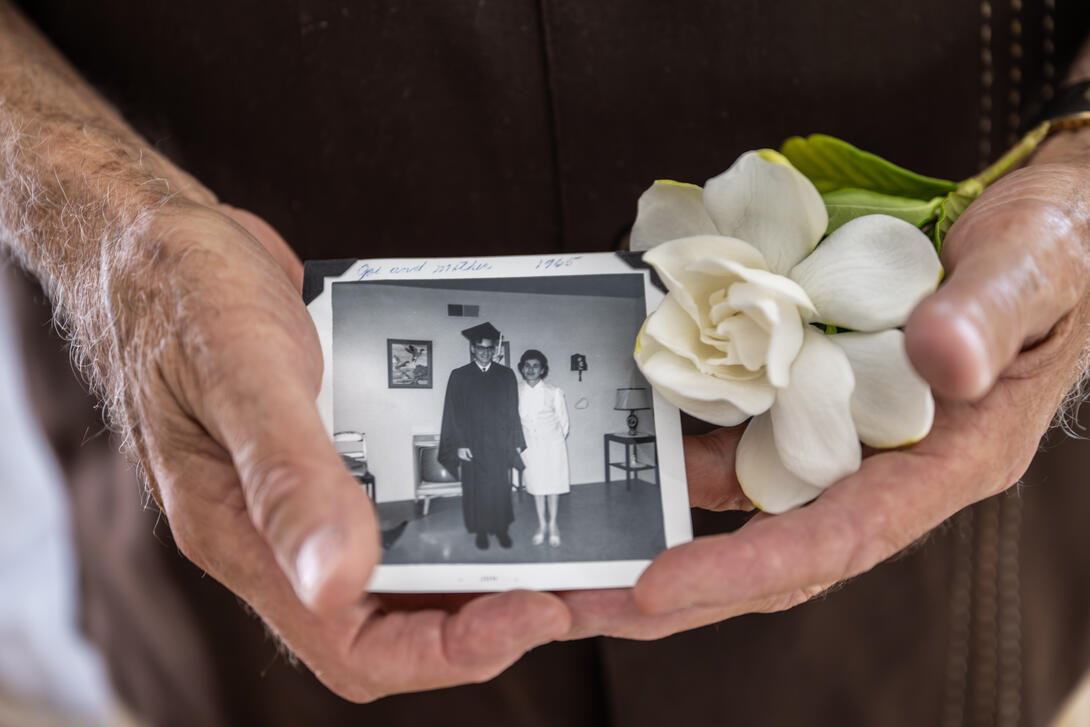
Anna’s energy-saving habits were decades ahead of their time.
“She was a force,” Joe recalls. “She worked long hours at the fish cannery but never lost sight of her dream — to own a home and have a solid place to raise me.”
Anna purchased the $500 lot on Brant Street and designed the home herself, placing the kitchen at the front so she could keep an eye on Joe playing in the street. The house was built with intention: a western exposure to catch breezes from the bay, no air conditioning, no dishwasher, and a manual garage door.
“Nana always said, ‘It’s not how much you save — it’s how much you spend,” Joe says with a grin.
Anna’s energy-saving habits were decades ahead of their time. She insisted on short showers, turned off lights religiously, and wore sweaters instead of turning up the heat. Clothes were hand-washed and hung to dry in the backyard, where Joe often helped pin them to the line.
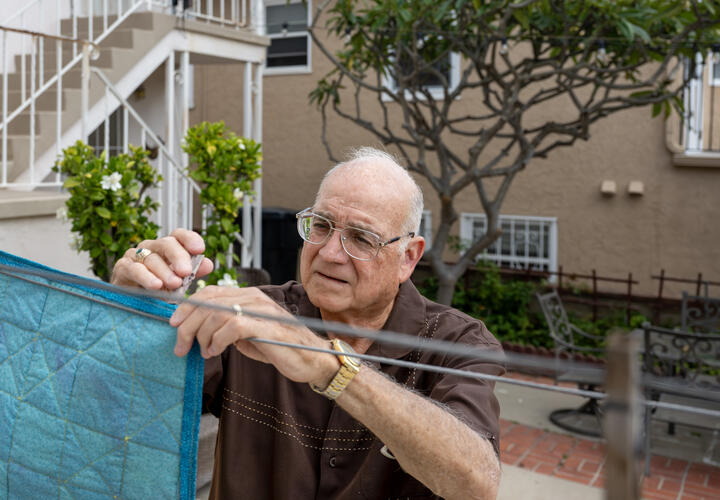
It’s amazing how much energy you can save just by optimizing what you already have.”
Today, Joe, a retired grocery executive, still lives in that same home, now filled with the laughter of grandchildren and the quiet hum of energy-efficient upgrades. Inspired by his mother’s values and guided by more modern best practices outlined in SDG&E’s summer savings page*, he’s made improvements that honor the past while embracing the future.
He started with an AC tune-up and a smart-fan controller to better regulate airflow. “It’s amazing how much energy you can save just by optimizing what you already have,” Joe says. He also invested in a lifecycle refrigerant charge to ensure his cooling system runs efficiently.
Joe wrapped the water heater and insulated the pipes, leading to reduced heat loss and lower utility bills. Setting the water heater to 120 degrees, he balances safety and energy efficiency. He also sealed HVAC ducts, insulated walls, and installed quad-pane windows to keep the home comfortable year-round.
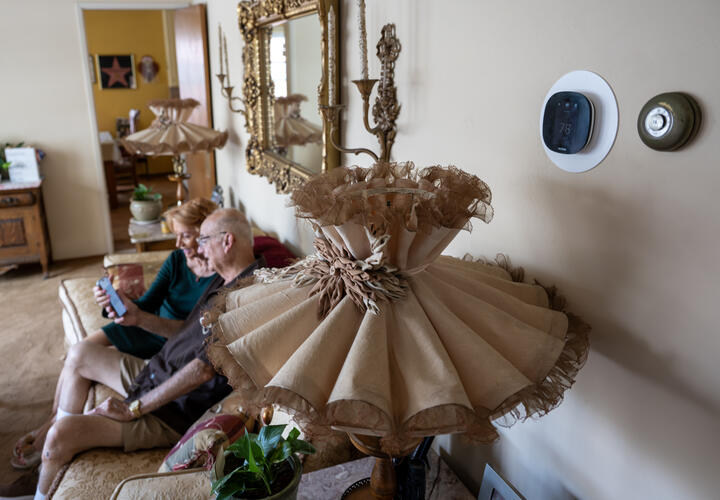
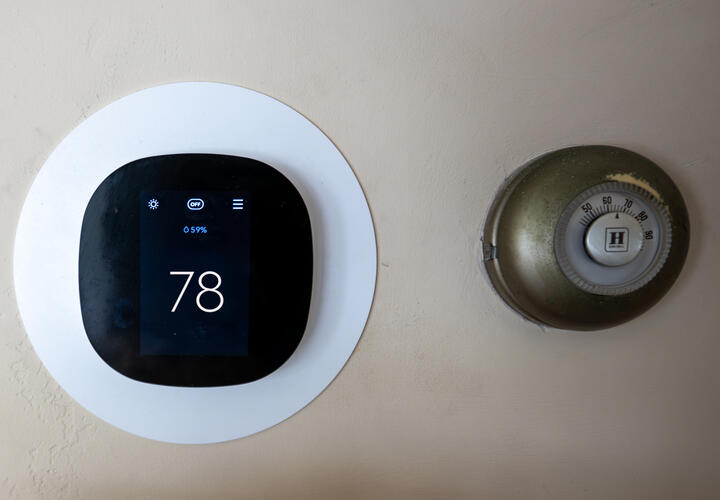
He also takes advantage of SDG&E’s summer-specific guidance.
Joe’s approach proves that small changes can add up to big savings over time.
He also takes advantage of SDG&E’s summer-specific guidance to reduce energy use during peak hours, especially between 4 - 9 p.m., when electricity demand and pricing are highest. He has shifted laundry and dishwashing to mornings and late evenings and encourages his family to use fans instead of air conditioning. Joe closes his blinds to block the sun during the heat of the day and then sets his thermostat to 78 degrees during peak hours.
He tackles ‘vampire energy,’ which is the power consumed by electronics and appliances even when they’re turned off. Joe unplugs unused devices, uses smart power strips, and programs timers for items like the coffee maker and the entertainment center.
“It’s surprising how much energy you can save just by being mindful,” he says. “I didn’t do it all at once,” Joe adds. “It was one project at a time, just like Mom did.”
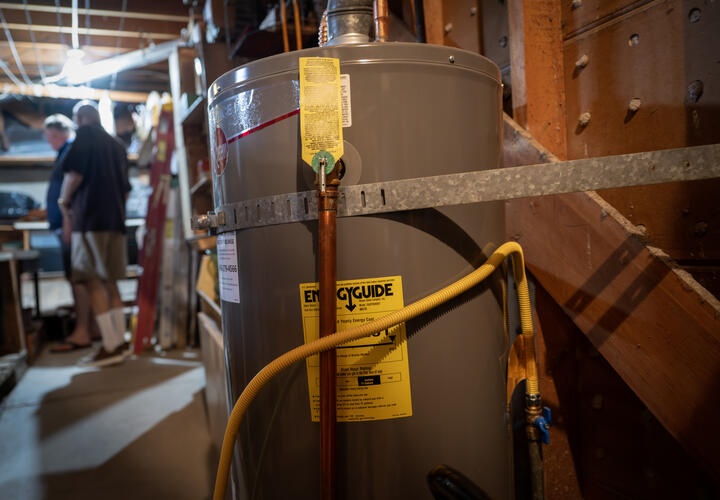
*The content provided herein is intended for informational purposes only and does not constitute legal, financial, or professional advice. All views expressed are those of the author and do not necessarily reflect the official policy or position of any affiliated organization. Use of this information is at your own discretion and risk.